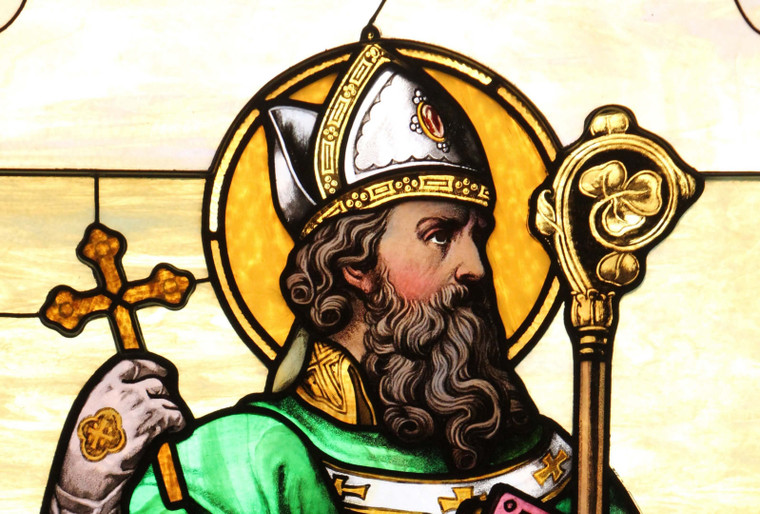St. Patrick the Warrior Poet
Posted by Warrior Poet Society on Mar 17th 2022
St. Patrick's Day traditions might conjure up plenty of imagery and memories for all of us.
The St. Patrick's Day parades, first popularized by Irish immigrants celebrating their heritage in the streets of New York after arriving during Ireland's potato famine.
The dyed-green river in Savannah and other cities. Green beer. The color green worn as protection against being pinched or punched. Those childhood trips for Shamrock Shakes at McDonald's.
Unfortunately some of these more modern traditions veil the more important and inspiring history of the man who "drove snakes from the Emerald Isle" as he boldly carried Christianity into the heart of Druid country.
So what made St. Patrick into the warrior poet we (should) remember him as today?
He Allowed Tough Times to Make Him Fearless
Back when England was under Roman rule, a Roman teen and shepherd named Maewynn Succat, age 16, was captured by pirates and sold into slavery in Ireland.
For six years he was subjected to forced labor with very few creature comforts, such as adequate clothing or adequate food. Though he was reportedly an atheist, he had experienced enough of Rome's Christianity to turn to God in his time of suffering and desperation.
And God seemed to answer his prayer, sending a ship to rescue him and return him to his family in England.
Maewynn allowed this time to shape and toughen him rather than weaken him with self-pity and resentment. He had found God in the process and rather than seek vengeance, he returned to Ireland with a higher purpose–that the pagans there would find God as well.
Maewynn was no longer Maewynn by then, but Patrick–his Christian name given to him to reflect his new life. The suffering he experienced had helped grow him into a man, and his faith in the midst of that had made him fearless.
He Was Fearless because of His Faith
If you know anything about St. Patrick, you've probably heard of his breastplate–a prayer poem recited in connection with his missionary journeys.
You might recognize this snippet (one of multiple stanzas praising God and praying for protection):
Christ with me, Christ before me,
Christ behind me, Christ within me,
Christ beneath me, Christ above me,
Christ at my right, Christ at my left,
Christ in the fort,
Christ in the chariot-seat,
Christ in the mighty stern.
He Fearlessly Fights for True Freedom
St Patrick wasn't entering the battlefield in any traditional sense, of course. He didn't have his sword drawn or his bow at the ready. He wasn't going off to war against humans in the way we might think. He didn't actually have a breastplate (which is what they called body armor back then).
He was heading into the Boyne Valley, a sacred place for the Druids he was attempting to reach with the Christian Gospel.
He had spent six years among these people, he knew their customs, he knew their vitriol toward Christianity, and he knew what could happen to him if they turned on him.
He prayed this prayer, binding himself to the higher purpose of his mission and placing his safety secondary to that calling.
Skill and bravery would make mercenaries of us all without a higher purpose for our mission in the world.
Rather than going armed with the weapons of war, St. Patrick went armed with the wisdom of God and the protection of God and for the higher purpose that he believed God had given him.
And whatever your religious beliefs, it's still valuable to celebrate the principles embodied by St. Patrick. Warrior Poets are people who skillfully fight, protect, and defend because we believe in higher ideals and higher purpose than the cravings contemporary culture tries to distract us with.
We want people to live free. Freedom from fear. Freedom from tyranny. Freedom to know and worship God.
It's the tough, brave, wise, and God-fearing warriors of any age who make and defend freedom against the tyrants of the day.
That's why it's important to Train Hard. Train Smart. Not Too Many Shamrock Shakes This Time.

